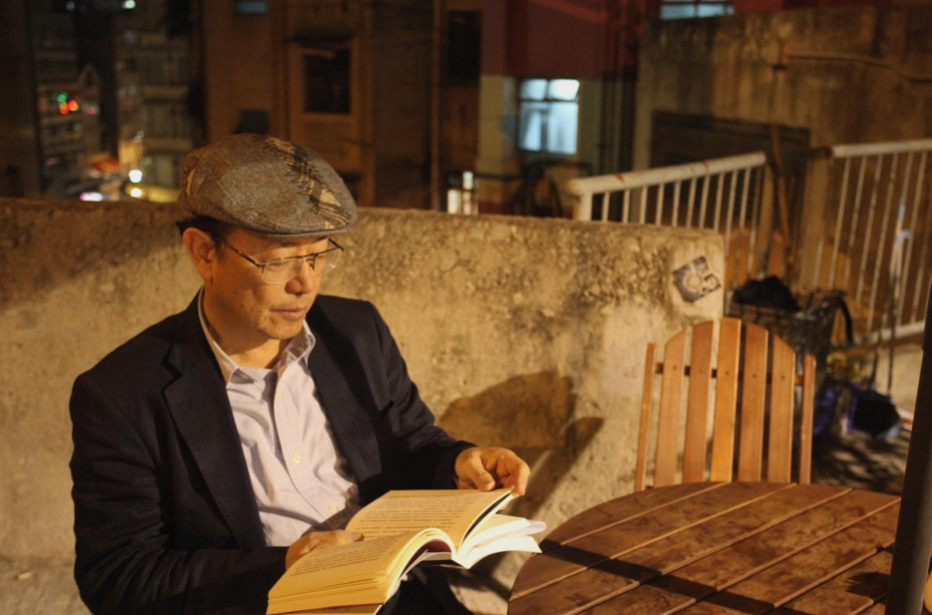Hong Kong Apostasy
On 1 July 2017, China Heritage marked the twentieth anniversary of mainland China extending suzerainty over Hong Kong by publishing translations, commentaries and art works under the collective title of ‘The Best China’.
That first in the series featured the poem ‘Cauldron’ 鼎 written by the celebrated Hong Kong writer Leung Ping-kwan (梁秉鈞, 1949-2013, also known as P.K. Leung and Yasi 也斯, his pen name). This was followed by the menu of the official banquet held in Hong Kong to welcome China’s party-state leader, Xi Jinping, on 30 June 2017, the day prior to the formal celebration and fireworks on the 1st of July.
We then sampled the speech Xi made on the actual day — one in which he employed the folderol of New China Newspeak. It was a statement of policy that contained dark warnings to the people of Hong Kong, and it was pointedly given only after Xi, Chairman of China’s Central Military Commission, had reviewed People’s Liberation Army troops stationed in the city.
This was followed by a menu from the restaurant M at the Fringe dating from 30 June 1997. We then revisited some observations by Lu Xun on banquets and Chinese civilisation before concluding with two selections from ‘A Spectre Prowls Our Land’ by the Sichuan poet Sun Jingxuan. A theme that united Lu Xun and Sun Jingxuan was that of what Bo Yang, the famous Taiwanese dissident and historian, called the ‘soy-vat culture’ 醬缸文化 of China. It is an autocratic tincture that stains everything exposed to it.
It was our aim to add a few discordant notes to the monotonously orchestrated festivities of the twentieth anniversary from the sidelines.
— from Cauldron 鼎, China Heritage, 1 July 2017
***
The latest chapter in ‘Hong Kong Apostasy’, an extension of our work on ‘The Best China’ inspired by the 2019 Uprising, features another poem by P.K. Leung. As John Minford, the translator of the poem, writes:
This poem, written in 1986, will be included in Selected Poems of P. K. Leung, one of a new series of six books translated from works by leading Hong Kong writers, to be published by the Chinese University of Hong Kong Press. This series, of which I am the General Editor, and which also includes the novel The Drunkard 酒徒 by Liu Yichang 劉以鬯, and The Teddy Bear Chronicles 縫熊志 by Xi Xi 西西, is the fruit of an ambitious project funded since 2013 by the Hong Kong Arts Development Council. The series will demonstrate the unique character and extraordinary richness of Hong Kong’s literary world.
‘Leaf Margin’ has a powerful resonance, as the ideologically driven and destructive refusal of the central government to recognise the different culture and society of Hong Kong (that tender ‘leaf on the margin’) becomes more glaringly obvious by the day.
— 8 September 2019
***
Further Reading:
- P.K. Leung 梁秉鈞, Terracotta Warriors on the Rhine 萊茵河旁的兵馬俑, trans. John Minford, China Heritage, 18 April 2019
- 任路漫 (Annie Ren), 閔福德談翻譯與「奇趣漢學」, 《上海書評》, 2019年9月8日. This interview, conducted by Annie Ren, an associate of the Wairarapa Academy for New Sinology which John Minford co-founded with Geremie R. Barmé, took place at the Academy’s European home at Tuchan, in the south of France. In it the translator discusses his word in the context of ‘Nouvelle Chinoiserie’ 奇趣漢學, an approach to culture and literature formulated on the basis of our long years working as writers, editors and translators in Hong Kong.

***
Leaf Margin
P.K. Leung
Translated by John Minford
Your regret is that your nutrient never reached the outermost leaf-edge.
Any gaze of admiration should always dwell on the main blossom,
On you, centre of the circle, your battlemented crown-petal
Radiating power, your official story so often rewritten;
I am but an obscure point somewhere on the circumference,
A smoke-signal of trouble scattered by the wind and dust,
A rumour from the borderland, vague outline of an unauthorised history.Please, don’t bend down towards us with that condescending attitude of yours,
Singing your loud inspirational songs, your sentimental ballads.
Leaves and flowers at the margin have their own charm —
Haven’t you ever noticed?
Can you even read them? Those unique leaf-veins, criss-crossed like streets,Going against the grain, challenging the blueprints embedded in your mind:
Have you ever even noticed them?
How they transcend the masses, how they go beyond the solemn façade
Of your central leaf, their roots intertwined deep beneath the water.
New leaves, their hearts not yet unfurled,
A chorus of subtle lyrics carried on the wind,
Call out for a new way of listening
And understanding.— May 1986
***
邊葉
梁秉鈞
你惋惜養份來不到最偏遠的葉緣
觀賞的目光當然應該集中在主花
你是圓心,冠瓣的城垛輻射著權力
反覆修訂的正史,我是圓周上面
曖昧的一點,是風沙擾亂了的狼煙
邊塞的傳說,野史裏模糊的情節請不要帶著君臨的神色俯身向著我們
高唱激昂的雨曲,或是附和風傳的靡音
邊緣的花葉有自己的姿態,你可留意?
你會不會細讀?獨特的葉脈如街道縱橫反駁你心中既定的藍圖,你有沒有細認?
逸出眾人注視的目光,主葉岸然的面貌
之外︰水底相連的根,心巻未舒的新葉
隨風合唱中隱晦了的抒情需要另外的聆聽
— 1986年五月

